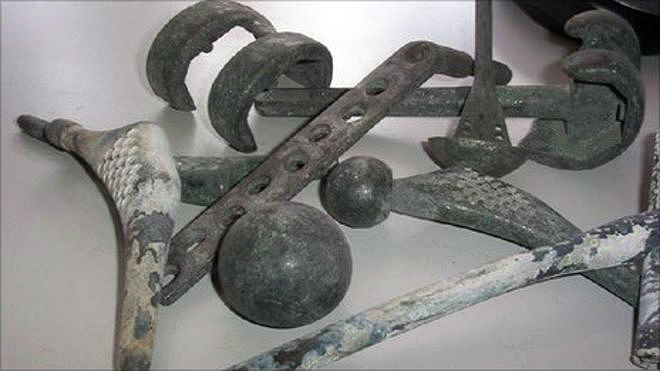Cremation - what happens to those metal implants?
At some time in our lives we may need to have an operation to replace a joint or have a metal insert to assist the repair of a bone. Often we will die with these metal implants still in our body. We may then be cremated and these metal implants will remain in the ashes following the cremation.

Some years ago, it was common practice for crematorium staff to take the implants and the remaining metals, from the construction of the coffin, from the ashes, and store them with others until there was sufficient amount of metal to bury of in the grounds of the crematorium.
Over the years this has become less acceptable and it is now agreed by environmentalists and the majority of those in the bereavement profession that burying the metal is not good environmental practice, with many cremation authorities opting to recycle the metals, through the Institute of Cemetery and Crematorium Management recycling scheme.
Metals recycling scheme
The Metals recycling scheme is operated on behalf of the ICCM under a contract with OrthoMetals, a UK subsidiary of a company that provides the same service in Holland. Under this contract OrthoMetals provide the equipment, staff, vehicles and other resources necessary for the collection and processing of recycled metals.
The service is provided at no cost to those crematoria who have signed up to the scheme. Any surplus monies from the recycling process is given to the Institute each year, at which time participating crematoria are asked for a nomination for a local bereavement related charity and are given an equal share of the money raised.
If cremation authorities have signed up to the ICCM Recycling Metals scheme this is what happens:
After each cremation, the metal is removed from the ashes as usual and placed in containers; however, instead of burying these metals, they are collected every six months by OrthoMetals. The metals are then taken to a sorting depot where the higher grade cobalt steel and titanium alloys are separated from the ferrous metals, smelted and sold back into the recycling stream. The higher grade metals come from orthopaedic implants, with the staples and nails used in the coffin construction making up the ferrous lower grade metal.
It is important to note that metals will not be recycled without the next of kin’s permission, if families do not wish the metals to be recycled then they will be returned to them.
Orbitas are members of this recycling scheme and throughout the years charities such as Macmillan Cancer Support; St Lukes Hospice and East Cheshire Hospice have benefited from this scheme.
Frequently Asked Questions
Q Why the change of policy?
A Recycling is environmentally friendly and provides real benefits to charities. The environmental benefits mean it is time for a change.
Q Can I have any gold or silver that is reclaimed?
A Unfortunately not, these metals will melt and combine with ash and could be dispersed widely within the remains. It is recommended that all gold and silver jewellery is removed prior to the cremation.
Q Do the implants get re-used for other patients?
A Unfortunately, they are too badly damaged for re-use to be allowed. They are smelted down into granules before being re-used in other industries.
Interesting fact
The operation to provide a new hip costs the NHS approximately £5,000 but the return value from recycling is around £10 per kilo, and there are five hips per kilo.